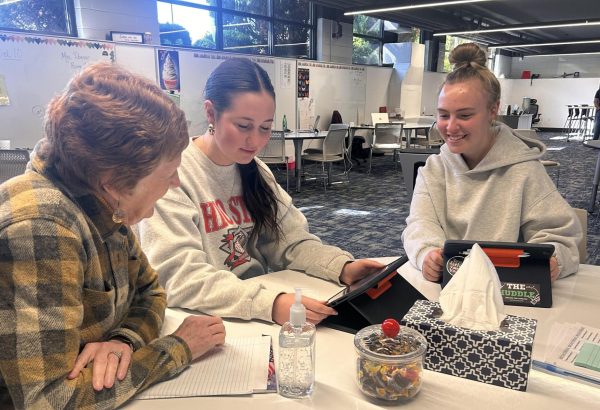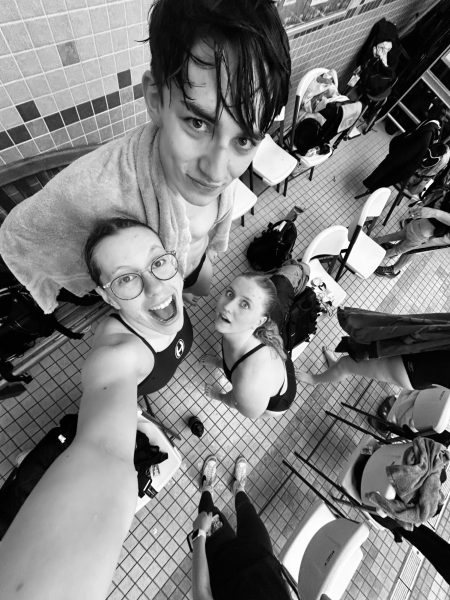Student overstimulation: America vs the world
According to my mother, I am over involved in Hoban. On average, I leave school around 7:30 p.m. every night, staying for lifting and practice before heading home to study late into the night. My various activities range from President of the Italian club, secretary of student council and Production Manager of this very paper. However, if I were born in any other country, my daily schedule and duties would be quite different.
Mrs. Salvadori educated her students on the cultural differences in American and Italian students. She listed contrasts in everything from our coffee orders to movie preferences—and specifically called out how overstimulated American students are compared to Europeans.
“In some European countries like France, Germany, Spain and Italy, high schools are purely academic,” she said. “There is no sport, music or art in high school. You have to enroll in your own in clubs or facilities, public or private. So as you can see this is a huge cultural difference.”
This cultural difference begs the question—are American academics suffering due to societal stress on extracurriculars?
In a Twitter poll, @TheHobanVisor (who is she, you wonder?) asked Hoban students how many extracurriculars, including sports, they were involved in. Of the 150 votes, 86 students stated they were apart of three or more school-related activities. This data confirms that at least 86 students out of the 800-ish enrolled spend time apart from their studies and instead focus on finding success in clubs and/or athletics. And of course, that 86 would be multiplied many times had this been a school wide poll. This 86 represents just a fraction of student involvement, which in some cases has escalated above healthy participation and snowballed beyond belief.
“Overall, being involved in a great deal of activities has helped me to realize the importance of time management,” senior Nora Kennedy stated. “I’m the kind of person that works hard for good grades, but in order to do this on top of the multiple activities I am in, I’ve had to pull several all-nighters accompanied by very early mornings. My mental health is not the best, but I do not want to belittle my involvement for my grades, so I do what I have to do.”
According to Salvadori, the kind of overwhelming stress Kennedy feels seemingly ceases to exist among European students, where institutions do not offer or campaign for extracurriculars.
“I think that sports and activities are a great opportunity to develop team skills, increase mental and physical strength, but academics should always come first,” Salvadori said. “Each student needs to evaluate how much he/she can do mentally. If it is too much and grades start to suffer, then it would be a good idea to curb it down a bit.”
Unfortunately, many students feel as though “curbing it down” would result in denial from college or portray them as unenthusiastic. Feeling coerced into multiple activities, students similar to Kennedy join clubs and teams while simultaneously taking AP and honors courses, and ultimately stretch themselves too thin. However, if the perfect balance between challenging oneself and driving yourself crazy is found, extracurriculars can teach students invaluable lessons.
“I think it can go both ways, at times we tend to value our extracurriculars and our success there too much to where we excuse our academic success,” senior Zoe Farah said. “I actually think that, if balanced right, extracurriculars can be beneficial.”
While student life is quite different across the pond, its key to remember that no amount of coercion should dictate your life. If you want to join a club, do it genuinely, not because it will enhance your college admission process or because you feel societal pressure. At the end of the day, it’s your responsibility to take care of yourself, not anyone else’s. If you feel as if you’re stretching your energy too thin, take a tip from our European friends, and make school simply about school.


